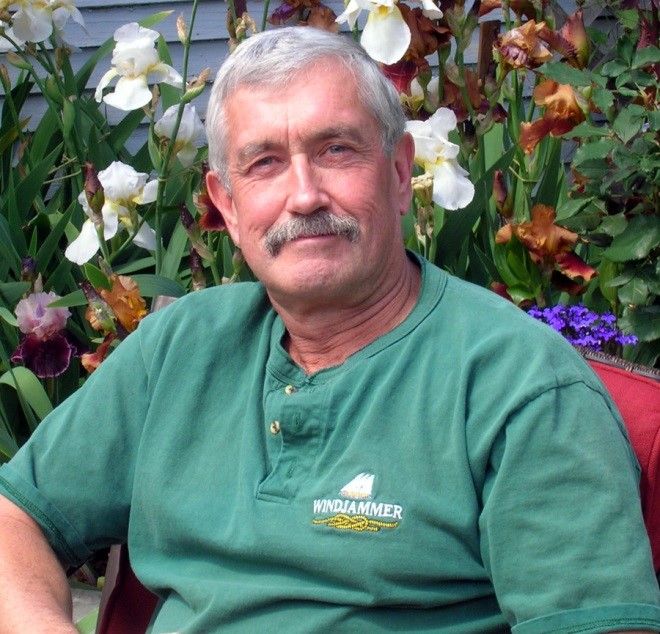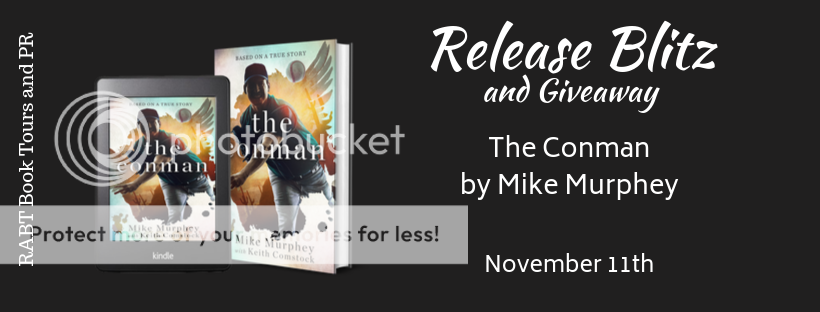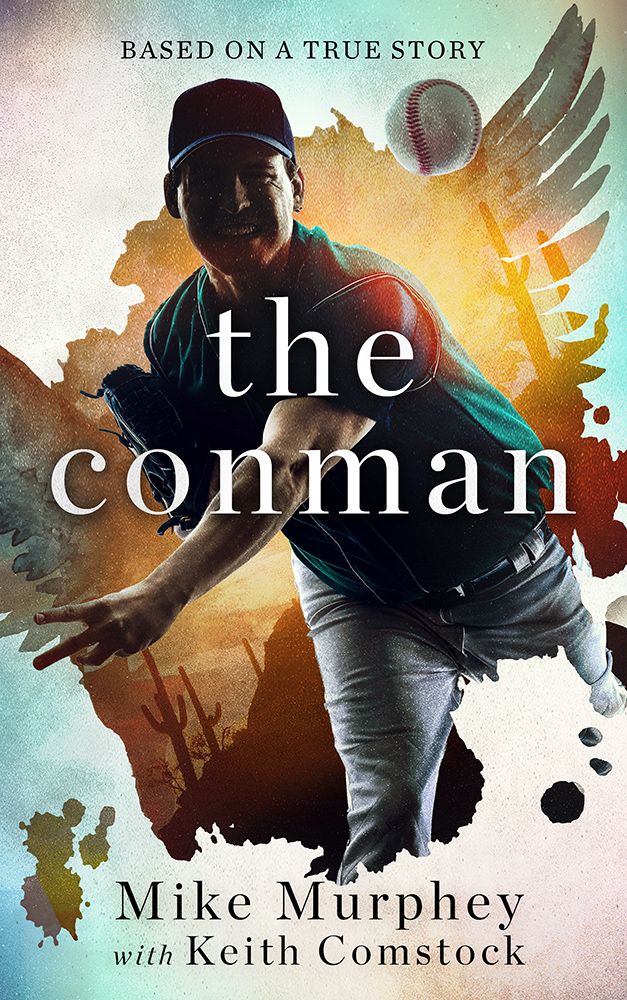Sports Fiction (Baseball)
Publisher: Acorn Publishing
Date Published: November 11, 2019
Conor Nash has lived his life with a single purpose—to pitch in the Major Leagues. He’s been released from professional baseball contracts ten times over a sixteen-year career, but he’s overcome every obstacle to finally reach The Show when he’s a decade too old.
As he faces the specter of injury-forced retirement, he becomes a man neither he nor his wife recognizes. During his career, Conor avoided the trap of alcohol and drugs because his drug was baseball. And what can an addict do when he realizes he will never get that high again?
Conor climbs treacherous Camelback Mountain, drinks a bottle of Champagne, recalls people and events, and seeks an answer. Who is Conor Nash if he can’t pitch?
The Conman is based on the Life of Keith Comstock. Keith pitched professionally for sixteen years, including Major League time with The Seattle Mariners, the San Diego Padres, the San Francisco Giants and the Minnesota Twins. Following his retirement in 1992, Keith has held minor league coaching and managing positions with several organizations. For the past decade he has served as the rehabilitation instructor for the Texas Rangers.
CHAPTER ONE
October 1992
Phoenix, Arizona
Failure can be an acute condition, perhaps even chronic, but quitting—quitting is fatal.
Conor Nash believed this to his marrow.
No stranger to failure, Conor had been released from professional baseball contracts ten times. He’d been released by major league teams. He’d been released by minor league affiliates. He’d been released in five countries encompassing three continents. He wasn’t sure how to count Puerto Rico. And, technically, that release occurred in an aircraft somewhere over the Atlantic Ocean. He’d had a contract when the plane took off. When it landed, they told him, “Go home.”
And Venezuela, well, they weren’t satisfied with just releasing him. A pissed-off dictator banned him from the entire country.
Hope remained, though, and ultimately, he’d kept his vow. Conor Nash pitched in the major leagues. So why did this champagne bottle clutched in his left hand cast a pall that felt like death?
Fat Brad Grady could have helped him sort through these confusing emotions. Brad loved debating the nuance of words, and he and Conor argued the semantics often enough. Where Conor saw a razor-sharp line distinguishing fail and quit, Brad found a middle ground he defined as surrender to reality or honorable retreat. Brad’s intellect would help make sense of Conor’s present struggle. Brad wasn’t available, though, was he? Conor closed his eyes and took a deep breath, trying to slough off the guilty anger he still confronted when he thought of Brad.
Conor set the champagne atop a flat red rock beside one of those damned jumping cactus plants. He bent forward, hands on knees. Everything around him conveyed hostile intent. Towering sajuaro their spines like nails, prickly pears, sharp-edged Spanish Daggers. The cholla cacti were worst, with needles that seemed to leap from the plant if you got too close.
Maybe he hadn’t thought this through.
This was an occasion, and he would not visit a host of family, friends and adversaries dressed in sweat pants and a t-shirt. Cowboy boots, jeans and a knit polo were proving inappropriate, though, for scaling Camelback Mountain.
He squinted into the glare of afternoon sun and saw a pair of young women making their way down. They wore cargo shorts. Sweat-soaked tank tops seemed plastered to their skin. Their hiking boots bit into the steep slant of red rock and sand surface.
Conor shaded his eyes, stood straight and did his best to look ten years younger.
“Hi,” he said.
They smiled politely and passed without comment.
Conor was not a womanizer. He’d put that behind him when he married Kate fifteen years ago. Still, if those women knew they’d been greeted by a genuine major league baseball player, they wouldn’t just hurry on their way, would they?
Then, he amended his thought. Ex-major league ballplayer.
Other hikers—all the traffic seemed to be headed down—offered curious glances at his clothing and champagne bottle. A few wished him success on his climb. He thought it a happy coincidence they were leaving. After all, he sought solitude at the camel’s hump.
Retrieving the bottle, he craned his neck toward the summit. Damn. He didn’t remember the fucking mountain being this steep. A half dozen more steps and the slick soles of his cowboy boots betrayed him again. He caught himself with his free hand, protecting his Champagne. Breaking the bottle after all these years would be catastrophic.
French. Moët-Chandon. Purchased for twenty-five dollars at an Idaho Falls liquor store during the summer of 1976. Conor hadn’t a clue whether brand and vintage qualified as good, bad or indifferent. They’d been four minor league baseball players. Kids really. The last man standing pact was Conor’s idea. The player remaining when the other three had officially retired from their playing careers got to drink the champagne. Sports Illustrated published a story about this pact when Kenny Shrom passed the bottle to Conor at when the1989 season ended.
The Idaho Falls Russets, a team named for a potato, represented minor league ladder’s lowest rung. And against all odds, three of the four pact members climbed from that first step to the majors. Mark Brouhard arrived first. He played a half-dozen seasons in Milwaukee, punctuated by a year with the Yakult Swallows, before Kenny took charge of the bottle. Kenny pitched for Minnesota and Cleveland until injury robbed him of 1988. His comeback the next season failed in El Paso.
Initially, the bottle sat on Conor’s garage shelf, subjected to a quiet indignity of shared space with wrenches and bicycle tires and motor oil. Then Kate pointed out it should probably be refrigerated. So, he made room at the back of his garage ice box. It loomed like a grim reaper each time he opened the fridge to grab a beer, and fed a sullen, brooding hostility that took seed following Conor’s final shoulder surgery.
Since second grade, Conor Nash had lived with a single purpose: to be a big-league pitcher. Even through high school, adults and friends indulged him with smiles and chuckles and, “Yes, but what if you don’t make the majors? What’s your back-up plan?”
The only adult who might have swayed him from his path had been his father. Hugh Nash cast an enormous presence. A brawler, he literally fought his way into a leadership role with the Teamsters at the Port of Oakland.
“Conor, I know what I’m supposed to tell you,” Hugh told his second-born son one grey fall Bay Area afternoon. Hugh had conceded he would not beat the lung cancer, and that his five sons would make their way into the adult world without him. He called each boy individually into the living room of the two-story house on Melendy Drive in San Carlos, California, to address their futures.
“Even though you had a good year in Idaho, there’s a long, tough road ahead,” he told Conor. A deep, rasping cough forced a pause. Conor made it a point not to wince or show concern, though he imagined what a painful fire the coughing built in his father’s lungs. Hugh’s failing body still held an iron will, and Conor would not acknowledge the cancer. As his cough subsided, Hugh drank from a glass of water, gathering himself.
“No matter what the scouts said, only something like four or five percent of kids drafted ever make the majors,” Hugh continued. “So, I’m supposed to say find something to fall back on, maybe school during the off-season, or see if I can hook you up driving a truck or working the docks.”
Hugh shook his head.
“I’m supposed say don’t put all your eggs in one basket. Conor, I’ve watched you try to change a tire. Son, you’ve only got one basket. That’s it. If you have a fall-back plan, that’s just what you’ll do—fall back. Since you were seven years old, you’ve aimed yourself like an arrow at one goal, and I’ve never seen anyone so focused, so single-minded. For the other boys, that would be a weakness. Not you. That’s your strength.”
And now, on an October afternoon sixteen years later, Conor climbed Camelback Mountain. Along with the bottle of champagne, he carried his father, his best friends—A.J., Basil, Brad—his brothers, his wife and children, a whole community of people who had celebrated his successes and commiserated over his shortcomings, teammates and coaches, both friend and foe. All who had shaped him for better or for worse.
He intended to sit atop a mountain overlooking Phoenix, drink his champagne, and reflect on people, places and events—try and understand what would become of Conor Nash now.
He honestly didn’t know, though, whether he was attending a party or a funeral.
About the Author

Mike Murphey is a native of eastern New Mexico and spent almost thirty years as an award-winning newspaper journalist in the Southwest and Pacific Northwest. Following his retirement from the newspaper business, he and his wife Nancy entered in a seventeen-year partnership with the late Dave Henderson, all-star centerfielder for the Oakland Athletics, Boston Red Sox and Seattle Mariners. Their company produced the A’s and Mariners adult baseball Fantasy Camps. They also have a partnership with the Roy Hobbs adult baseball organization in Fort Myers, Florida. Mike loves fiction, cats, baseball and sailing. He splits his time between Spokane, Washington, and Phoenix, Arizona, where he enjoys life as a writer and old-man baseball player.
Contact Links
Purchase Links


